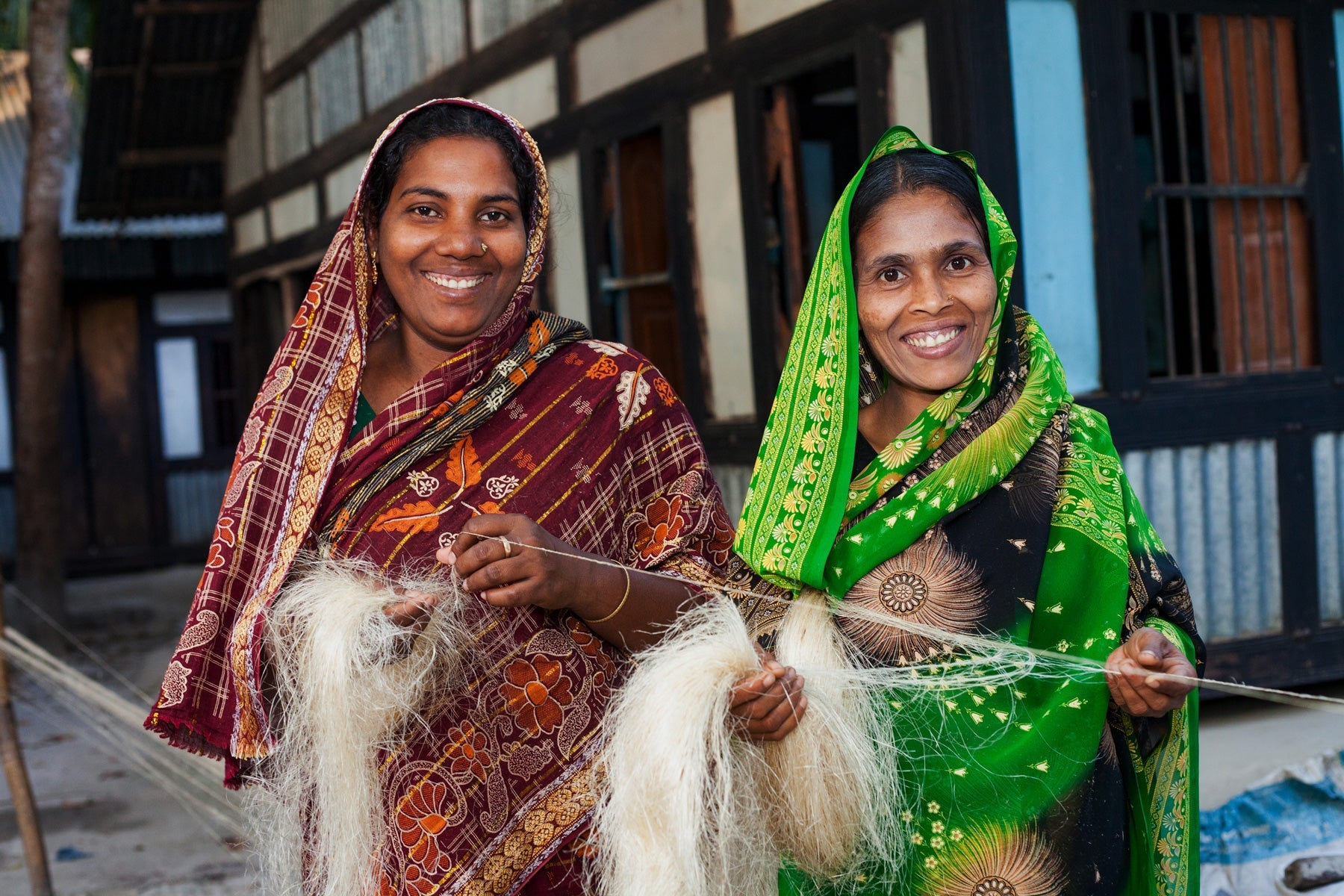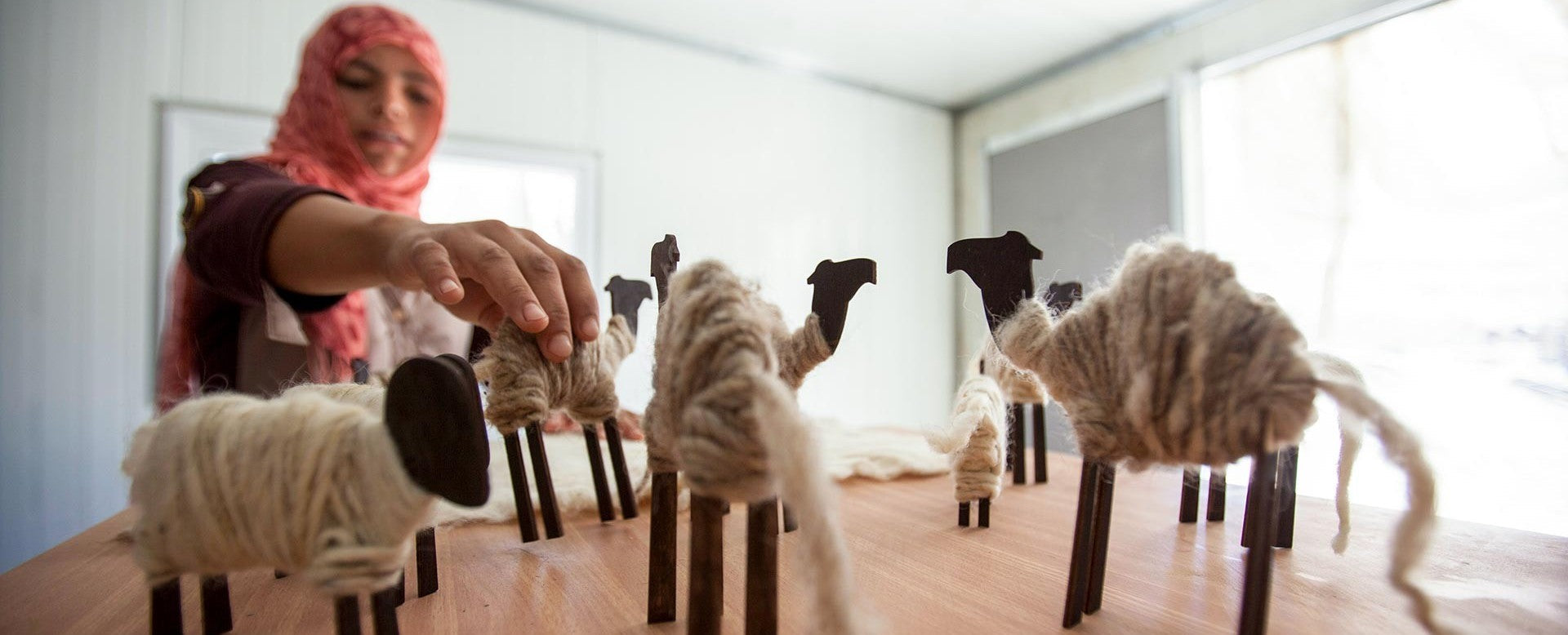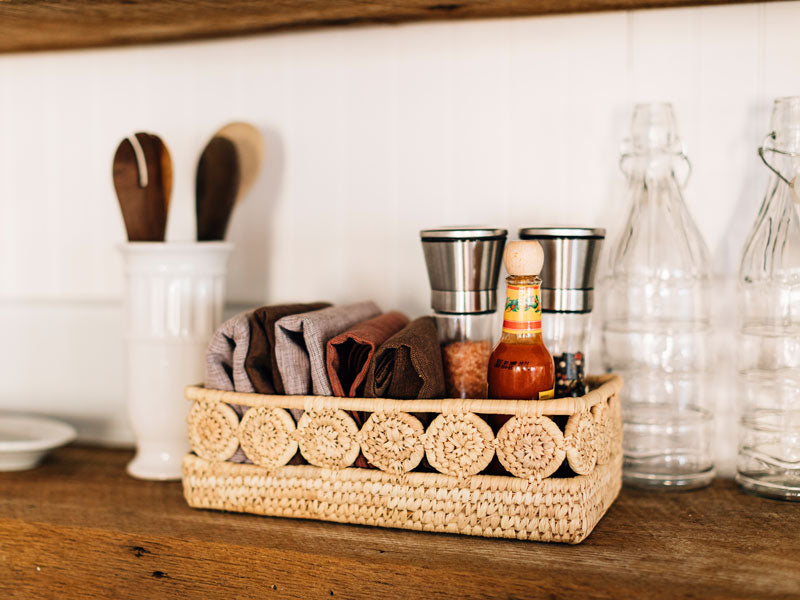Sustainable Hemp Products for a Cleaner Tomorrow

There is a plant in existence proving to answer all our sustainability questions. She’s a true jill-of-all-trades, who appears to be able to bring sustainability to fiber crafting, building materials, paper production, clothing, textiles, fuel and food production. She has been misunderstood in the U.S. over the last century, but lucky for us, hemp is finally getting to take her place as the sustainability hero she is.
Here at Ten Thousand Villages, the sustainable hemp products coming to us from our artisan partner group, Prokritee, in Bangladesh, are offering easy sustainability swaps in self-care routines. Let’s start there.
Put your plastic loofah down, friend. You have a more eco-friendly option!

The Natural Hemp Washcloth is one of several sustainable hemp products made by Bangladeshi artisans at the production center of Bagdha Enterprises that provide a sustainable alternative to synthetics (that tend to be full of microplastics) to folks around the world. The hemp washcloth is the perfect combination of a winning material and functional design. But how does the hemp go from a Cannabis Sativa L plant to an eco-warrior’s body scrubber?
Sustainable Hemp Production
Hemp requires no particular climate or soil and no pesticides or herbicides to thrive, making it viable in most parts of the world, and a wildly eco-friendly material by comparison to cotton. Like bamboo, its growth rate is wicked fast, making it a sustainability powerhouse, and it grows in abundance, just like jute, in the river lands of Bangladesh where Prokritee began in 1987. In an effort to offer employment to women in a rural area where jobs, specifically for women, are scarce, Prokritee was formed. They have been training women in various artisanal skillsets and offering them employment in safe conditions with benefits ever since.

The artisans working with Prokritee at the production center of Bagdha Enterprises, take the fibers that were harvested, stripped, washed and dried by local farmers and process them for spinning the hemp threads manually. These threads are then crocheted into functional (and often beautiful) lifestyle products like the Hemp Back Scrubber.

Cannabis as in Cannabis?
Hemp has gotten a bad rap in the U.S. and it’s about time we cleared her name. Cannabis sativa L is an industrial hemp plant. It’s in the same genetic family as the cannabis used for medicinal and recreational purposes, only it contains a THC (delta-9-tetrahydrocannabinol) content of less than 0.3%; meaning, there are little to no psychoactive contents, differentiating it from medicinal cannabis in both chemical form and function. Like how you and your sister are so wildly different, even though you share so many of the same genetic markers (remember that thing she did Spring Break of ‘17? You would never!).
Hemp has been so misunderstood, she has been thoroughly regulated, if not banned in the U.S. (and in many other countries as well) intermittently throughout the last century, but here in the twenty-first century, as we begin to painfully acknowledge climate change and inquire how our industries might be able to counteract it, the answer is frequently hemp. In addition to her quick growth rate and hardy independent growth, she’s also considered a friend of Mother Earth’s due to the actively positive effects she has on her!
Hemp gifts these things to Mother Earth (and her occupants):
Suppression of weed growth (keeps the bad guys out)
Anti-erosion properties (keeps her youthful)
Drains soil of poisonous substances and heavy metals (like a juice cleanse on repeat)
Requires relatively little water (not too demanding, and doesn’t drain her resources)
Recyclable (doesn’t poison her at the end of its life)
Non-toxic (doesn’t poison her during its life)
Biodegradable (leaves no trace)
Absorbs large amounts of CO2 (like an air purifier without the noise)
Are you on the hemp bandwagon yet? The more industrial hemp is studied, the more ways we find to apply her to our ongoing sustainability efforts. Most recently, she’s been used in green building materials and biodegradable plastics because she’s so strong, and plays so well with other natural materials, often making them stronger!
Make the Swap
Now that you’re fangirling over hemp as much as we are, here are some ways to invite her over and put her to work with sustainable hemp products.

Made the swap to bar soap yet?
It can significantly reduce your plastic waste consumption! With that sustainable swap comes the need for a soap saver bag. Enter: the Hemp Soap Bag! Naturally anti-microbial, hemp is a wonderful material to use in the production of bath items. Drop all your soap pieces here and continue to use them to the ends of their lives, minus all the slipping. Ain’t nobody got time to chase bar soap in circles around the drain.

Sponge to scrubber
Did you know kitchen sponges have up to 45 billion types of bacteria in them per square centimeter? They’re porous, and synthetic and they never dry out. Bugs LOVE them. Give these natural Hemp Kitchen Scrubbers a try! They dry better, have naturally anti-microbial properties, and they’re much easier to clean and sanitize in between uses.





Comments